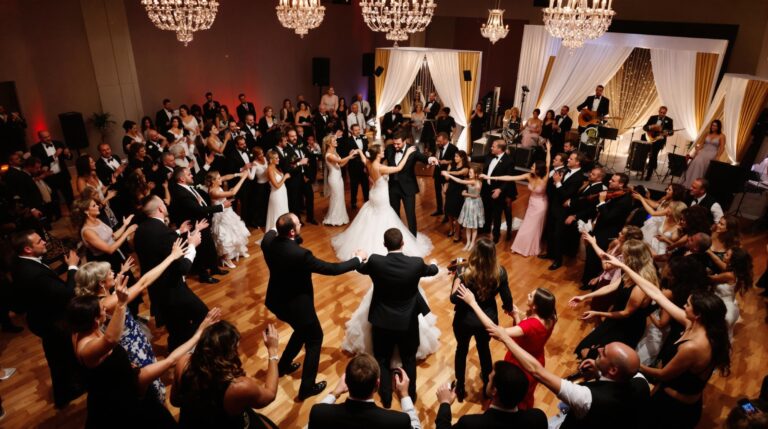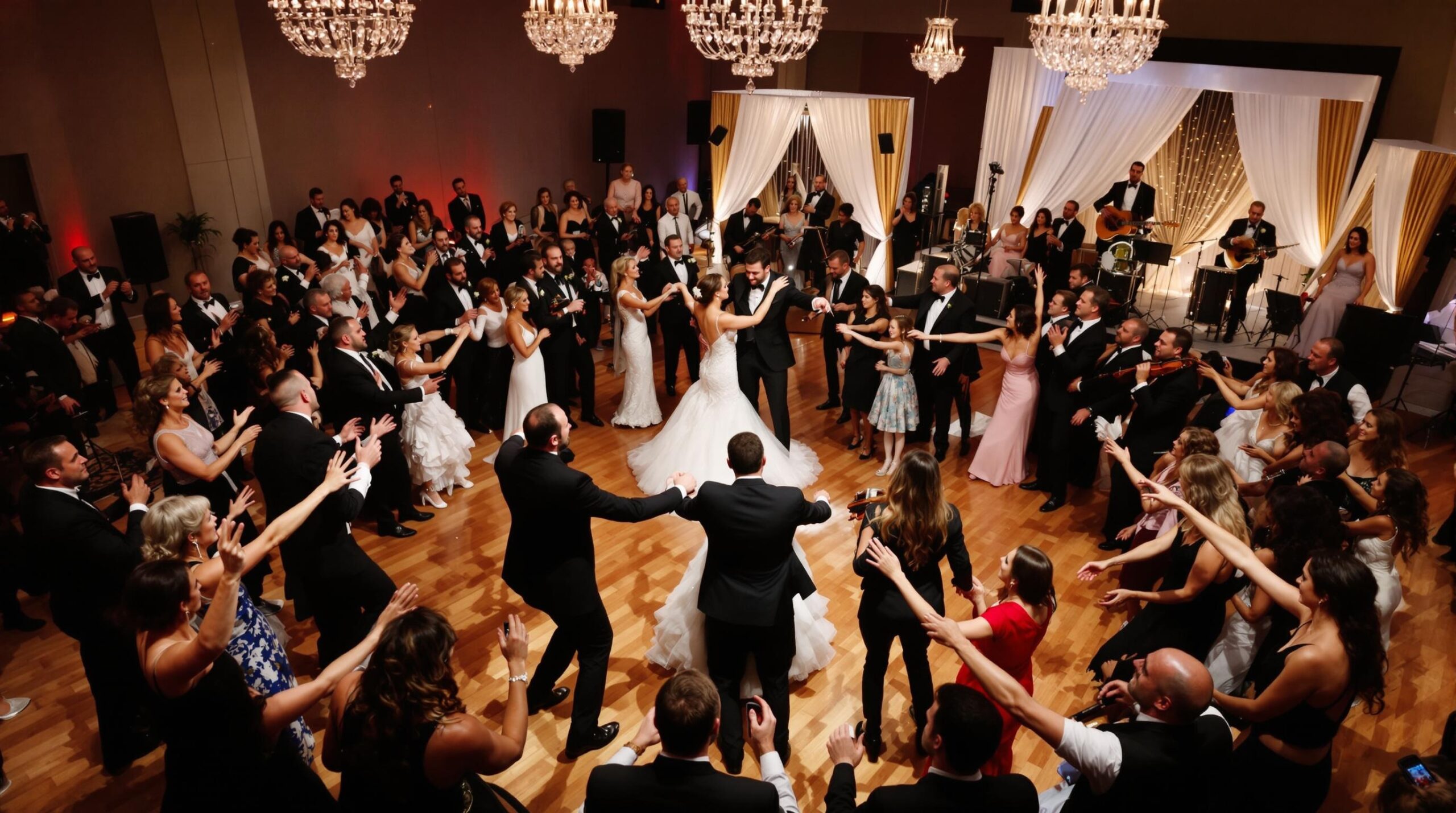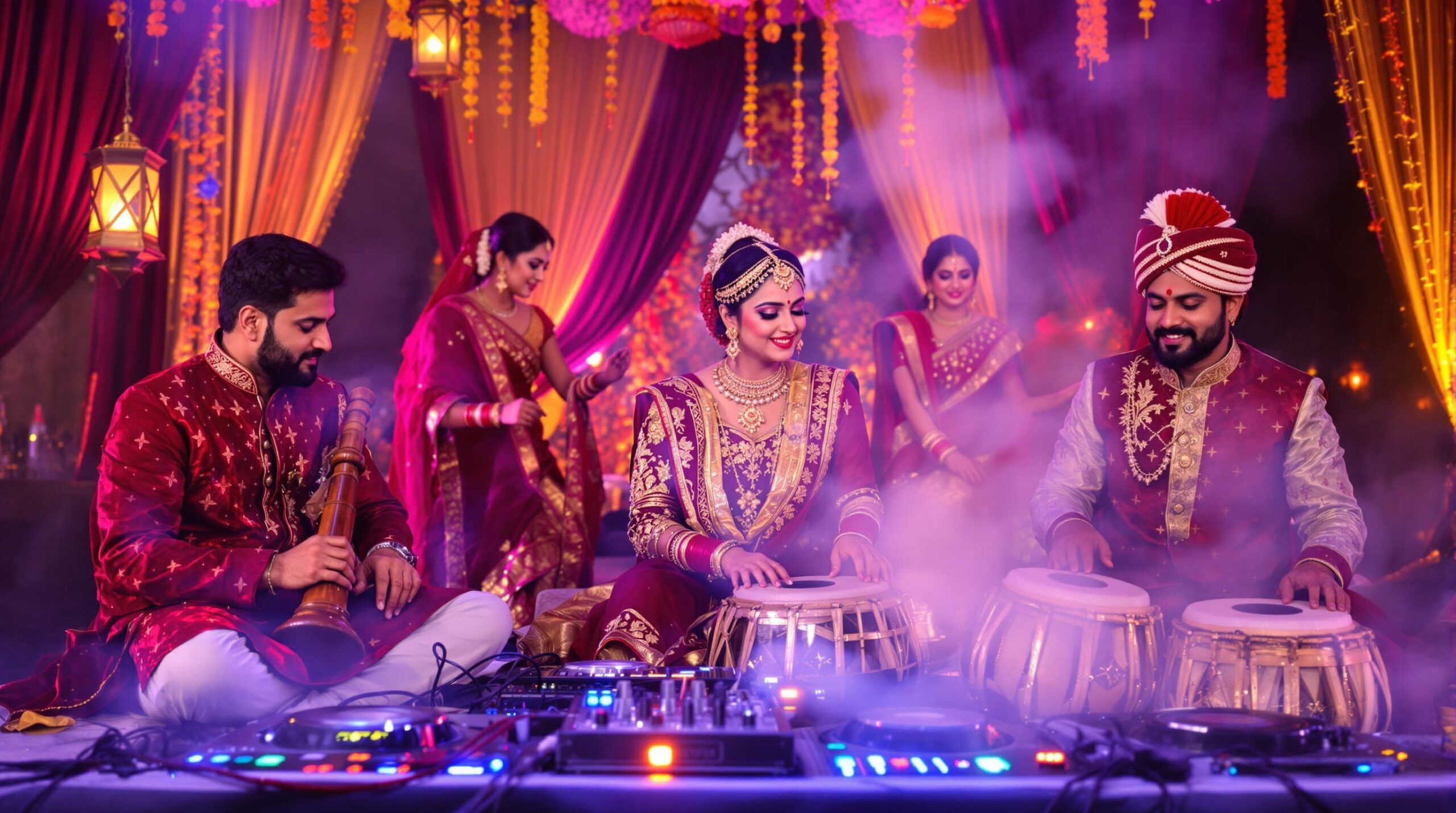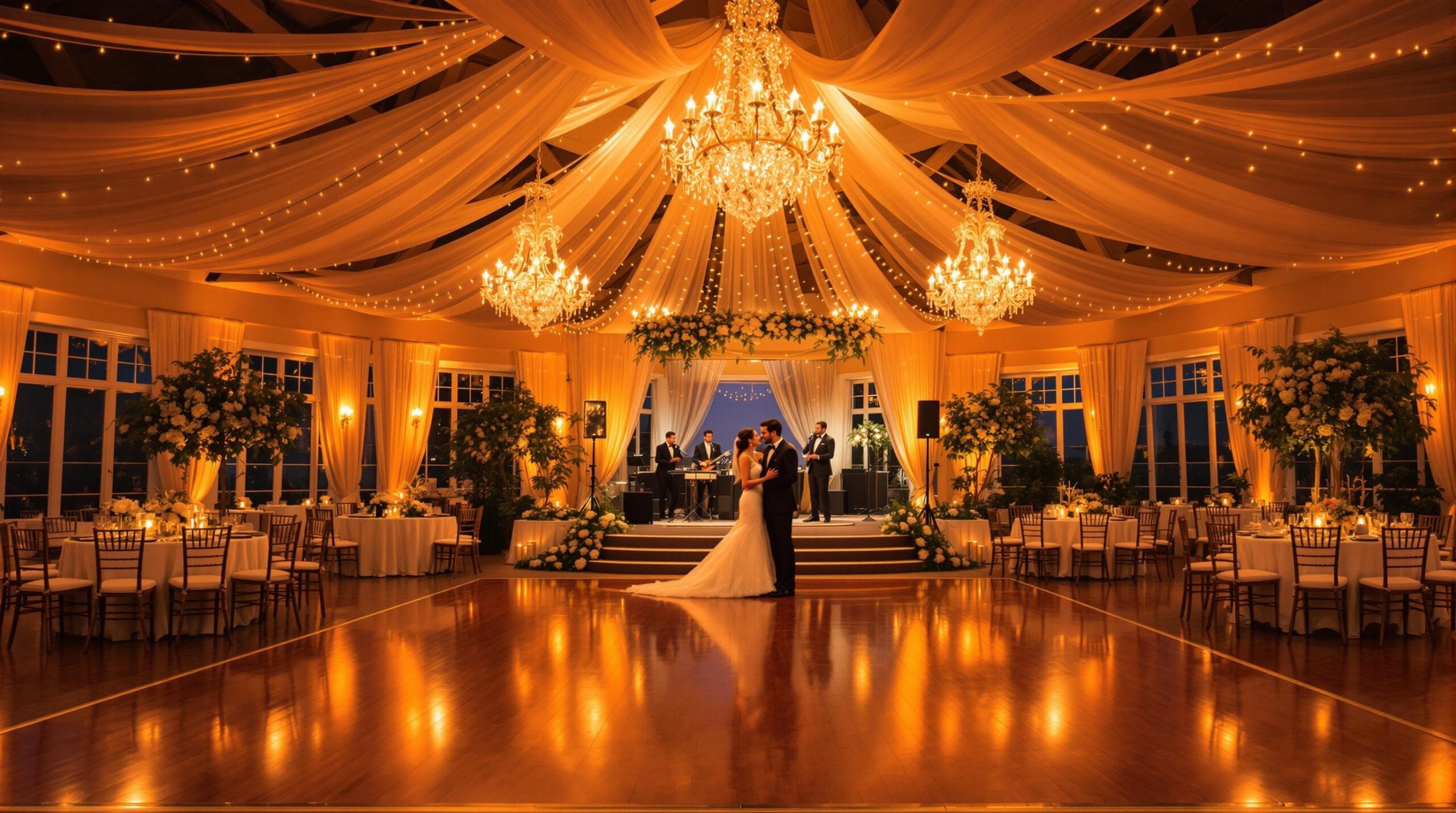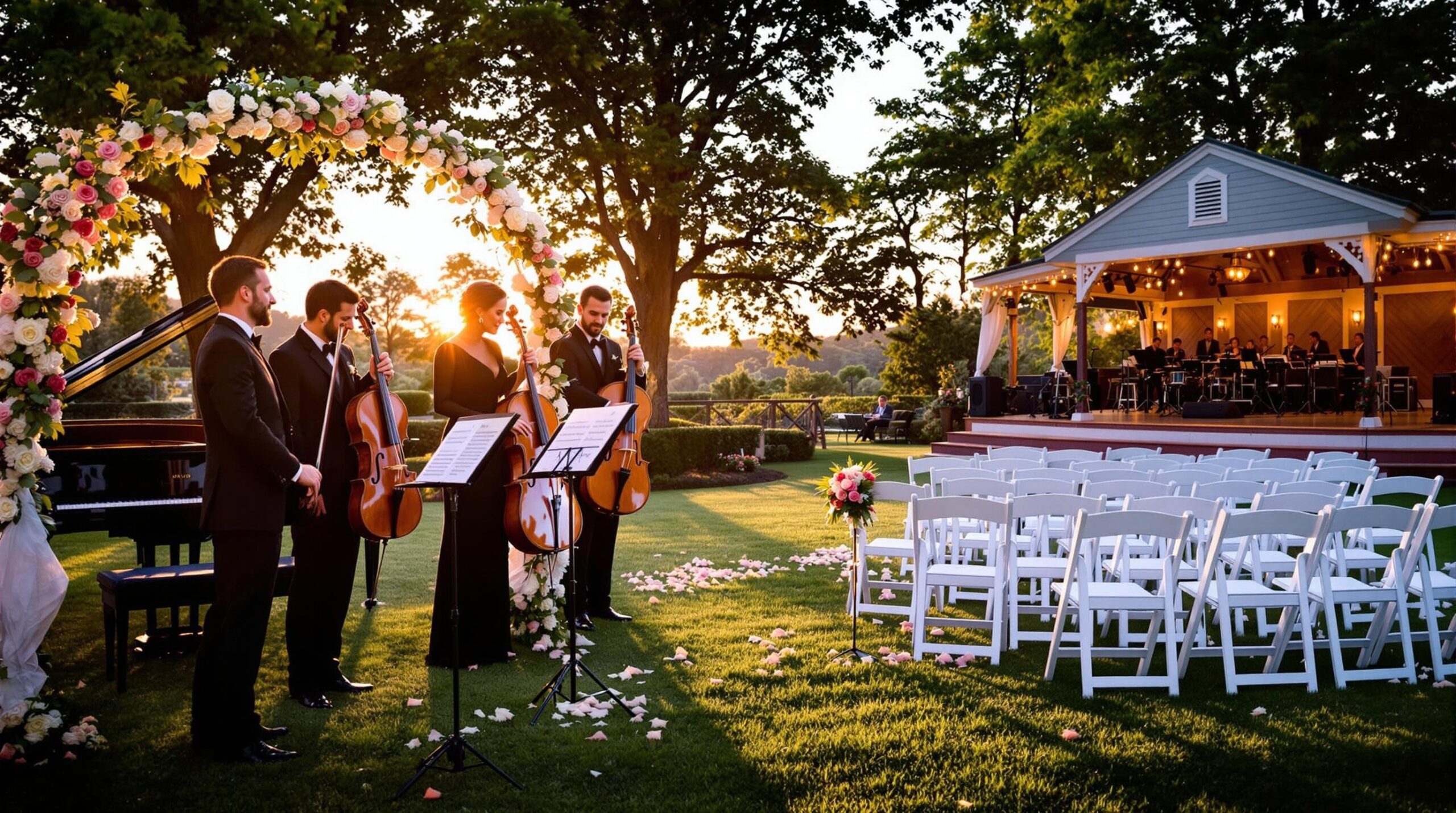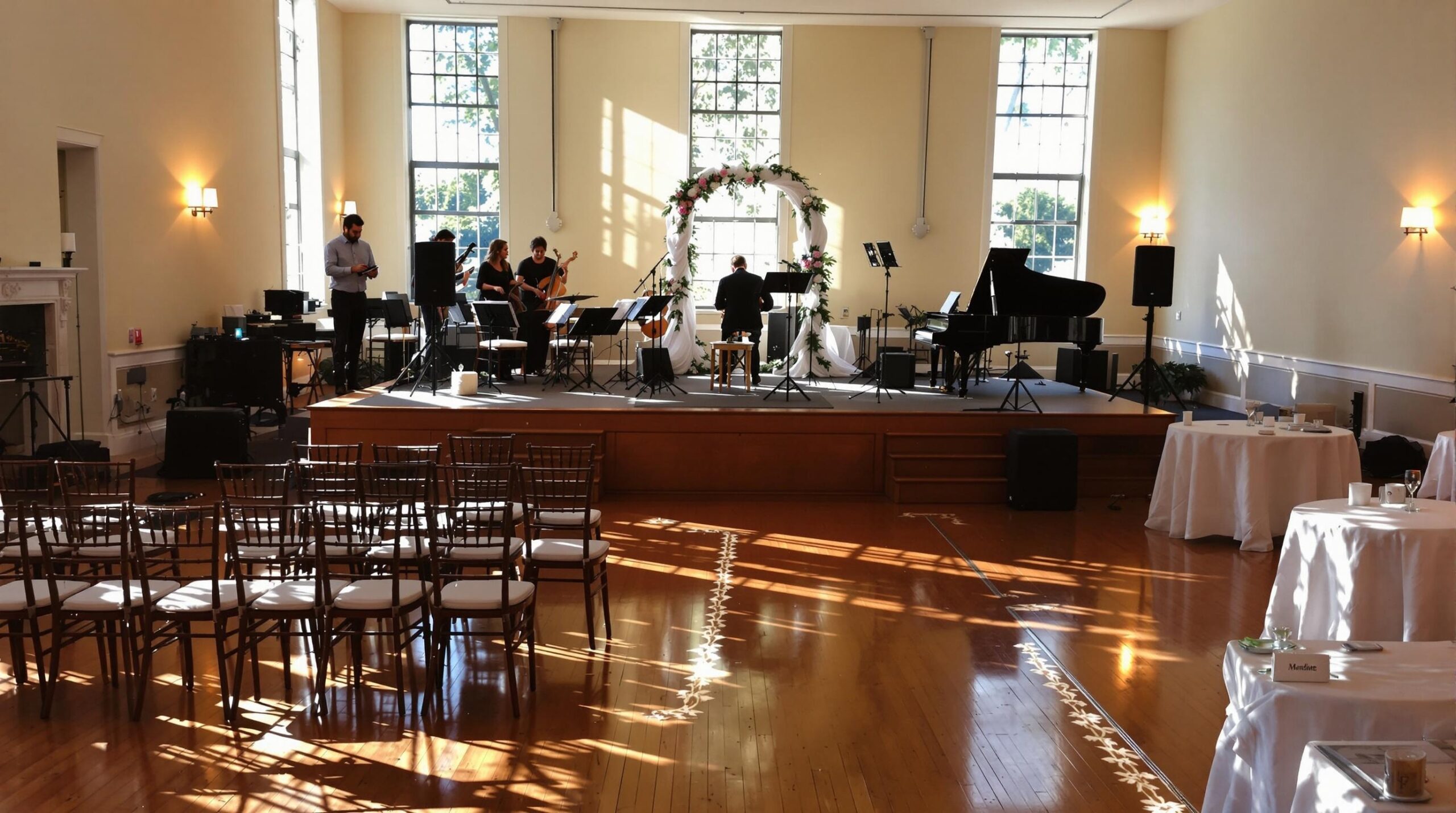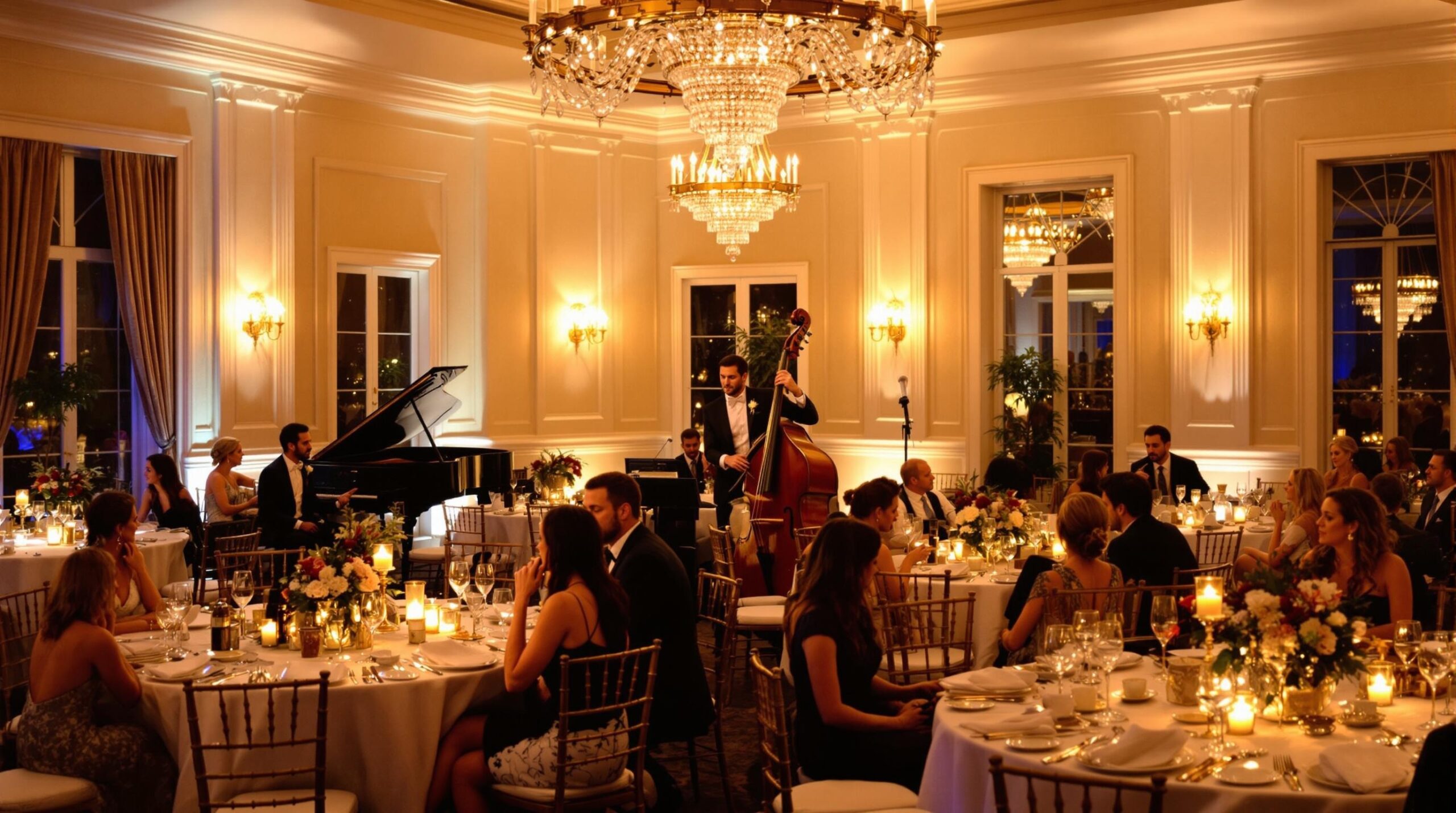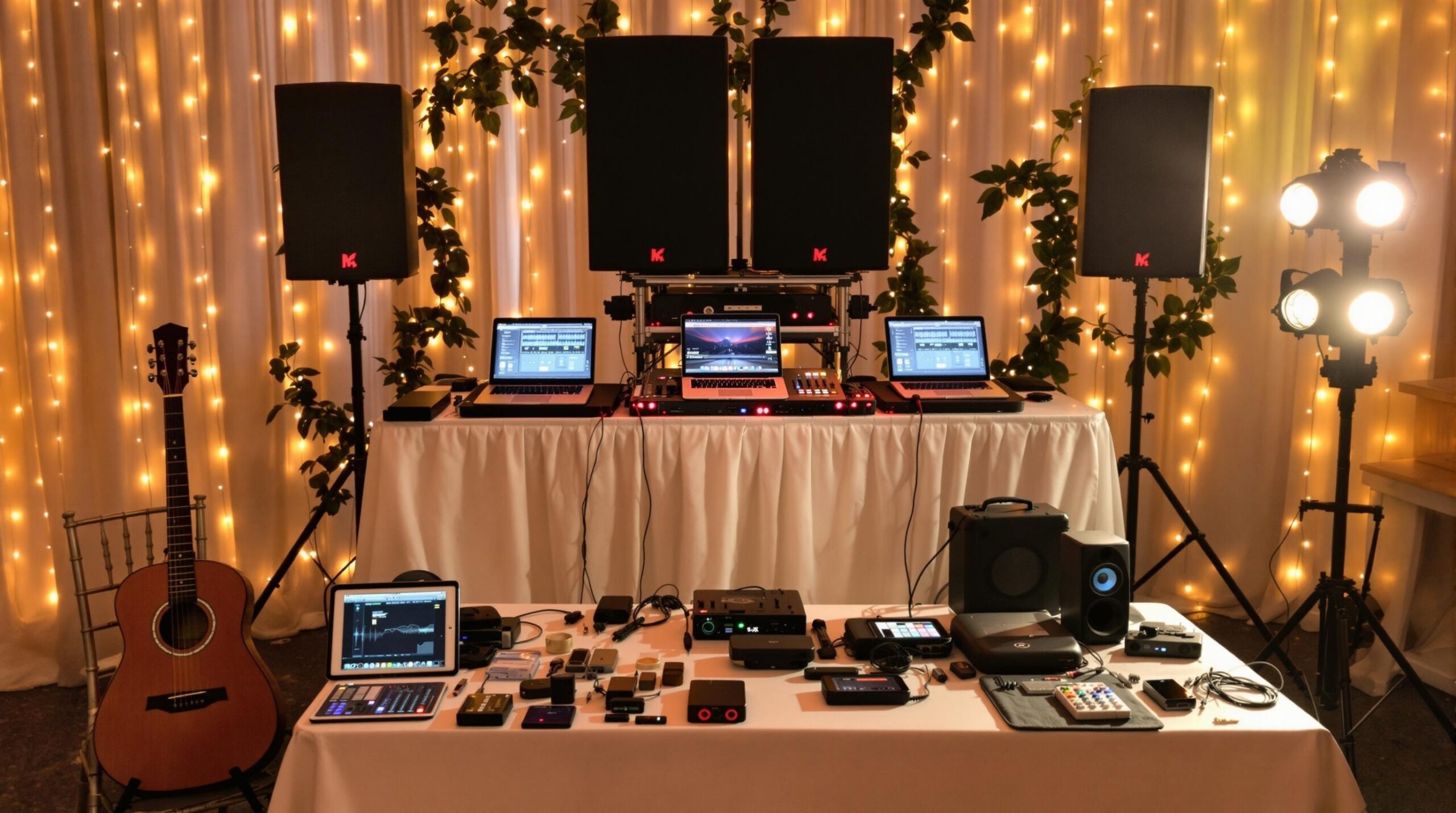Jewish wedding celebrations embrace centuries-old musical traditions that blend religious meaning with joyful celebration. Music plays an essential role in creating the right atmosphere and marking important moments throughout the ceremony and reception.
Most Popular Jewish Wedding Songs for Different Parts of the Ceremony
- Processional Songs: “Dodi Li” and “Erev Shel Shoshanim”
- Breaking the Glass: “Siman Tov U’Mazel Tov”
- First Dance: “Od Yishama” or “Im Eshkachech Yerushalayim”
- Parent Dances: “L’dor V’dor” or “B’nei Yerushalayim”
The Importance of Hora Dancing and Music Selection
The Hora represents one of the most anticipated moments at Jewish weddings. This traditional circle dance typically features the songs “Hava Nagila” and “Od Lo Ahavti Dai”.
| Dance Moment | Traditional Song Choice |
|---|---|
| Circle Formation | Hava Nagila |
| Chair Lifting | Siman Tov U’Mazel Tov |
Modern Takes on Traditional Jewish Wedding Music
Contemporary Jewish weddings often blend traditional songs with modern arrangements. Popular artists like The Maccabeats and Six13 offer modern interpretations of classic Jewish wedding songs.
Popular Modern Additions:
- Acoustic versions of traditional songs
- Hebrew-English fusion songs
- Contemporary Israeli pop music
- Klezmer fusion with modern genres
When selecting music, consider working with bands or DJs who understand both traditional Jewish wedding music and contemporary preferences. The right balance creates an authentic yet modern celebration that honors both tradition and personal style.
Pro Tip: Create a timeline for your wedding music that includes both traditional moments and opportunities for modern selections. This helps maintain the cultural significance while allowing for personal expression.
Selecting the Right Musical Entertainment
When choosing between a band or DJ for a Jewish wedding, consider both traditional expertise and modern capabilities. Professional Jewish wedding bands typically include 6-12 musicians who specialize in both traditional and contemporary Jewish music.
Key Factors for Entertainment Selection:
- Band Benefits: Live energy, authentic sound, ability to adjust tempo and style
- DJ Advantages: Extensive song library, cost-effective, consistent sound
- Hybrid Option: DJ plus live musicians for key moments
Regional Variations in Jewish Wedding Music
Jewish wedding music varies significantly based on cultural background and geographic location. Sephardic, Ashkenazi, and Mizrahi traditions each bring unique musical elements to wedding celebrations.
| Cultural Background | Musical Characteristics |
|---|---|
| Ashkenazi | Klezmer style, Yiddish songs |
| Sephardic | Mediterranean influences, Spanish melodies |
| Mizrahi | Middle Eastern rhythms, Arabic scales |
Timing and Flow of Wedding Music
Strategic music placement enhances the wedding experience and maintains energy throughout the celebration. Create distinct musical phases that align with different parts of the event.
Suggested Music Timeline:
- Pre-Ceremony: Soft instrumental pieces
- Kabbalat Panim: Upbeat welcome songs
- Bedeken: Traditional niggunim
- Reception: Mix of high-energy dance sets and slower periods
Final Planning Recommendations
Start music planning at least 6 months before the wedding date. Schedule meetings with potential musicians or DJs to discuss your vision and requirements.
Essential Planning Checklist:
- Create a “must-play” and “do-not-play” song list
- Confirm equipment requirements and setup times
- Review sound restrictions with your venue
- Plan specific songs for key moments
- Schedule a final planning meeting two weeks before the event
Pro Tip: Record your band or DJ preferences in a shared document with your partner, including specific songs and timing preferences for each part of the celebration.

